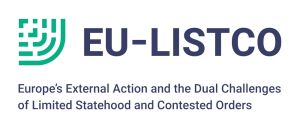 28 January 2019, 15-17, Mansarda Seminar Room, Villa Schifanoia
28 January 2019, 15-17, Mansarda Seminar Room, Villa Schifanoia
Most research on violent radicalisation often focuses on why people take up arms, and very little has focused on why individuals choose not to engage in political violence.
In Egypt, after the ouster of Mohammed Morsi in July 2013, many voices warned that non-violent Islamists would shift their tactics to include the use of violence. However, only a minority within the Brotherhood and its supporters have decided to do so. In Tunisia as well, many researchers warned the Tunisian government that declaring Ansar al-Sharia as a terrorist organisation in August 2013 would lead its supporters to take up arms. However, again in the case of Tunisia, only a minority within Ansar al-Sharia did take up arms.
Although most policy attention focuses on the causes of radicalisation, the case of Egyptian and Tunisian Islamists raises an equally important question: why has only a small minority turned to violence? In answering this question, this roundtable seeks to contribute to the larger debate on the sources of resilience to violent radicalisation in the Middle East, and how to understand the intersection between ideational and material factors in preventing Islamist youth from following a violent path.
Speaker | Georges Fahmi, Research Fellow, MEDirections
Chair | Federica Bicchi, Team Leader for EU-LISTCO, Global Governance Programme
The session will include a presentation from the speaker, followed by a roundtable discussion.
This roundtable is organised in the framework of the Middle East Directions Programme and the EU-LISTCO project. The EU-LISTCO project has received funding from the European Union’s Horizon 2020 research and innovation programme under grant agreement n° 769886.
Everyone is welcome to participate.
EUI’s events page here.



